Eliza Dushku: From Cheerleader to Vampire Slayer to Mom of Two
There is so much more to the Boston-born actress that you would ever suspect given the bad-girl roles that made her famous

Kicking vampire ass as Faith on Buffy the Vampire Slayer, waving her pom-poms in Bring It On or traveling backwards in time to try and prevent certain murders from occurring on Tru Calling just seemed like another day in the life of actress Eliza Dushku. And whether she’s spent her career tapping into her dark side or playing someone a little lighter, all of it is somehow related to who she is as a person at any given moment.
“It depends on what comes up, where I am and what I’m giving off,” says Dushku. “Sometimes they seem to be different manifestations of my different personalities. I think we all do have interesting people in us. I try to mix it up, keep it fun, keep it real, keep it interesting. But it’s always a circumstance where the grass is greener.
“When you’re on a comedy,” she continues “you’re, like, ‘I need to do something serious.’ I was doing the movies The New Guy and City by the Sea pretty much simultaneously. It was night and day. The characters were so different. It makes it fun and kind of interesting. For me, I think I have to see a street-wise element to the character. I like to see intelligent young women in roles and as characters. I gravitate towards that street-wise element.”
Who played the daughter Dana in True Lies?
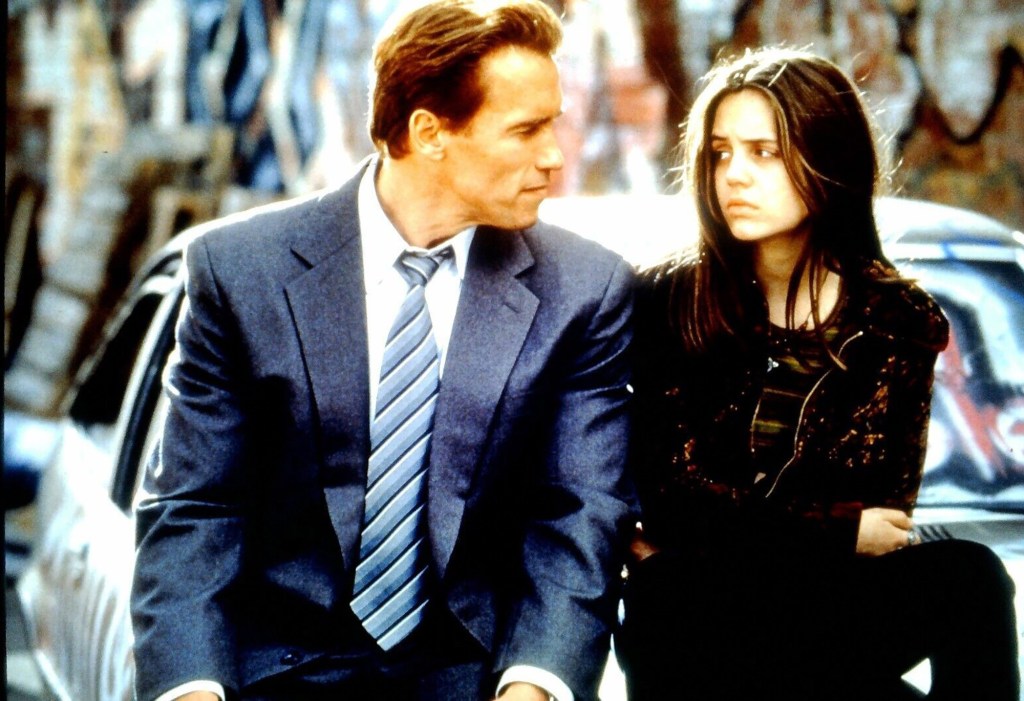
Born Eliza Patricia Dushku on December 30, 1980 in Boston, Massachusetts, the actress made her movie debut in That Night (1982), followed a year later by This Boy’s Life. Her first big break came in James Cameron’s True Lies (1994), in which she played Dana Tasker, daughter to Arnold Schwarzenegger‘s spy character Harry Tasker and Jame Lee Curtis‘ unsuspecting Helen Tasker. That same year saw her cast in Fishing with George, which was followed by Bye Bye Love and the TV movie Journey in 1995. Race the Sun was her 1996 effort, followed the next year by her being cast as independent Slayer Faith Lehane on the TV series Buffy the Vampire Slayer.
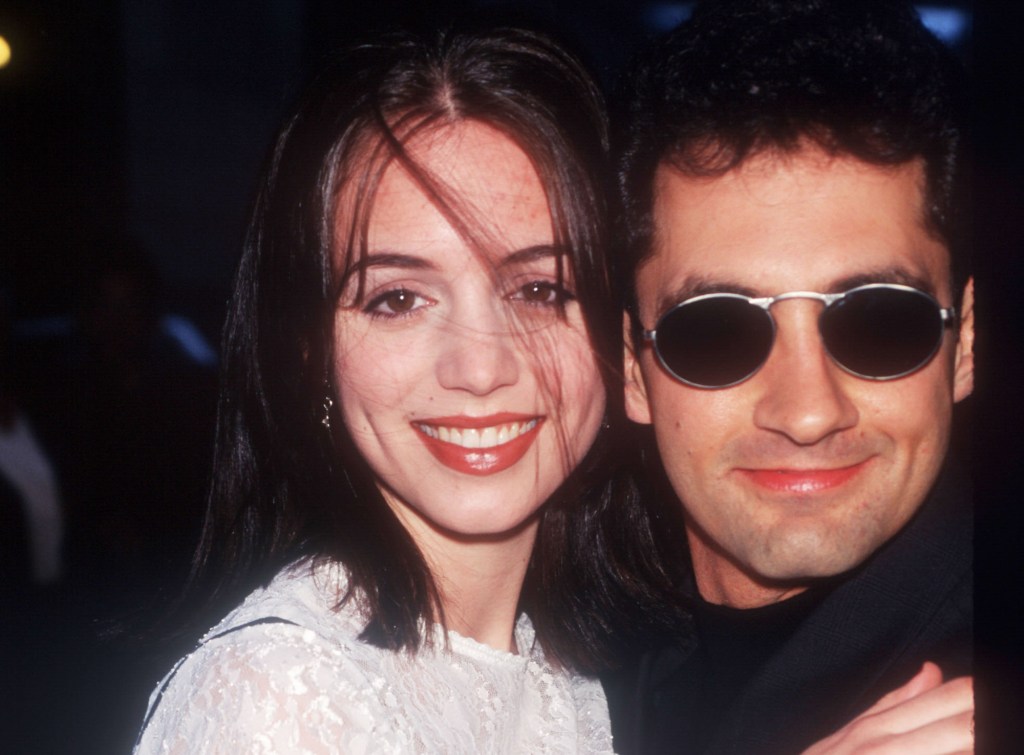
Independence, it should be noted, was nothing new to Eliza Dushku, who was legally “emancipated” from her parents at age 17. “It was really not as black and white as, ‘I divorced my parents,’ which I know happens a lot in this business,” she says. “My mother has never been a stage mom. I lived in Boston my whole life, even the seven or eight years that I was doing films, and she always wanted me to be in high school.
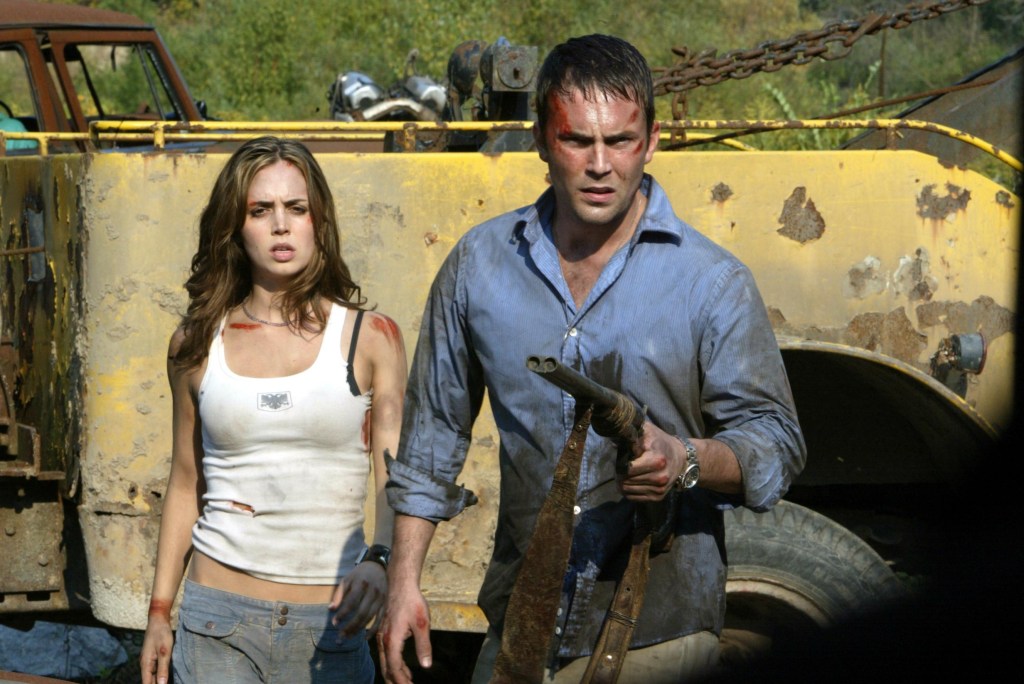
“When my grades weren’t doing so well from on-set tutoring, she said, ‘Forget the movies, girl.’ She [was] a government professor at a university, and she said, ‘I want you to come back to town, go into public school and get good grades in your junior and senior years, and just live the life of a junior and senior in high school’.’ It really was always her just wanting the best for me, so I graduated high school with my class, went to the promo and enrolled in college.”
But she didn’t get very far into college life.
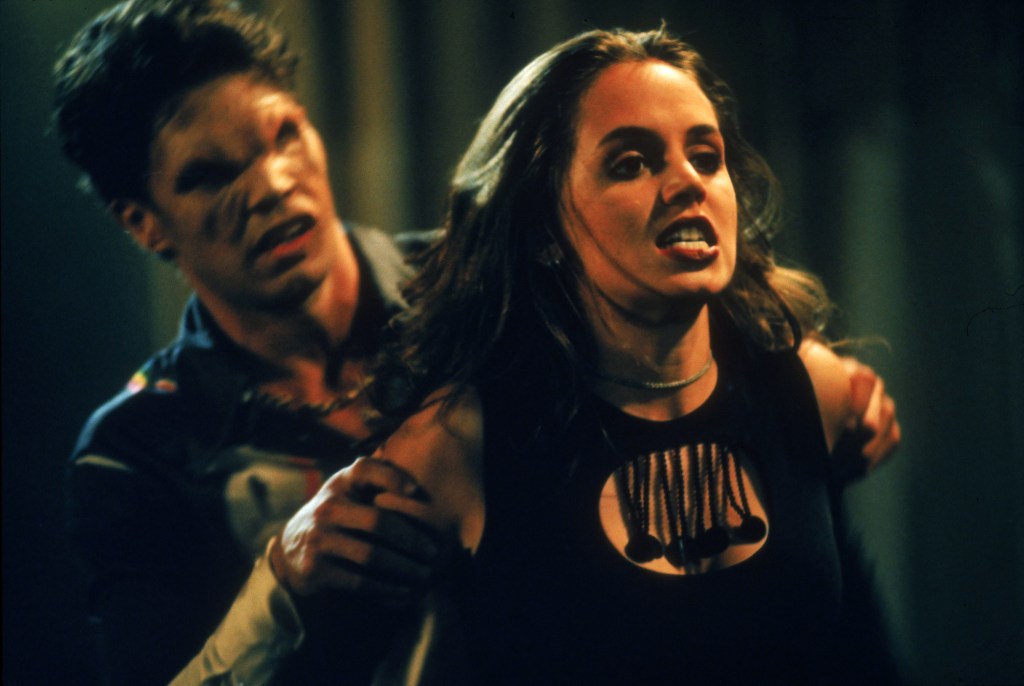
“I enrolled in my mom’s school, I was all set up, I went to orientation, I had my dorm all sorted out. Meanwhile, my mom was already planning to go to Romania to write a book,” Eliza Dushku explains. “So, she was going to be out of the country. I was 17 when I graduated. When Buffy came up — and it came out of the blue — it was really a hard choice, because originally they only wanted me for five shows in season three and then they kind of came up and said, ‘Would you be the villain this season?’ and I’m going, ‘Yeah, that would be amazing.'”
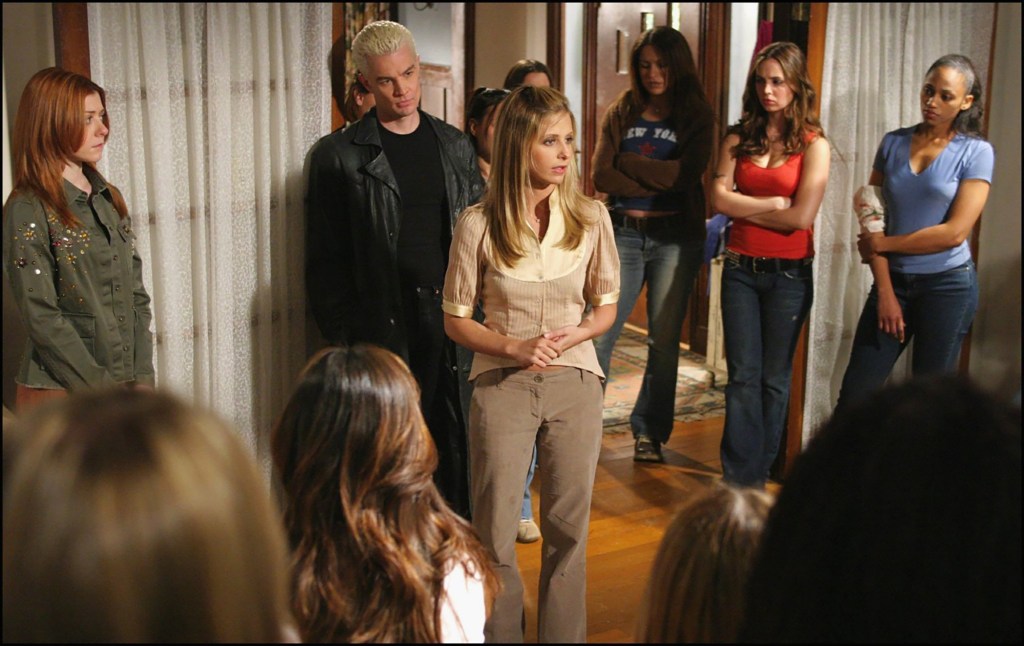
“I knew that it would be a fun job to take on,” she continues, “and by that point I knew that I loved working with those people. So I just stayed on and through the writers and I, we created this character that the fans really responded to. But at the same time, I was really, really excited about going to school. So that’s when we did the emancipation, knowing that she was going to be out of the country and because I was ready to go out and be independent. In fact, the sole reason for the emancipation was so that I could be a legal adult for work, and especially the night shoots on Buffy, because otherwise — if you’re classed as a child — you can’t work past a certain hour.”
Having ‘Faith’
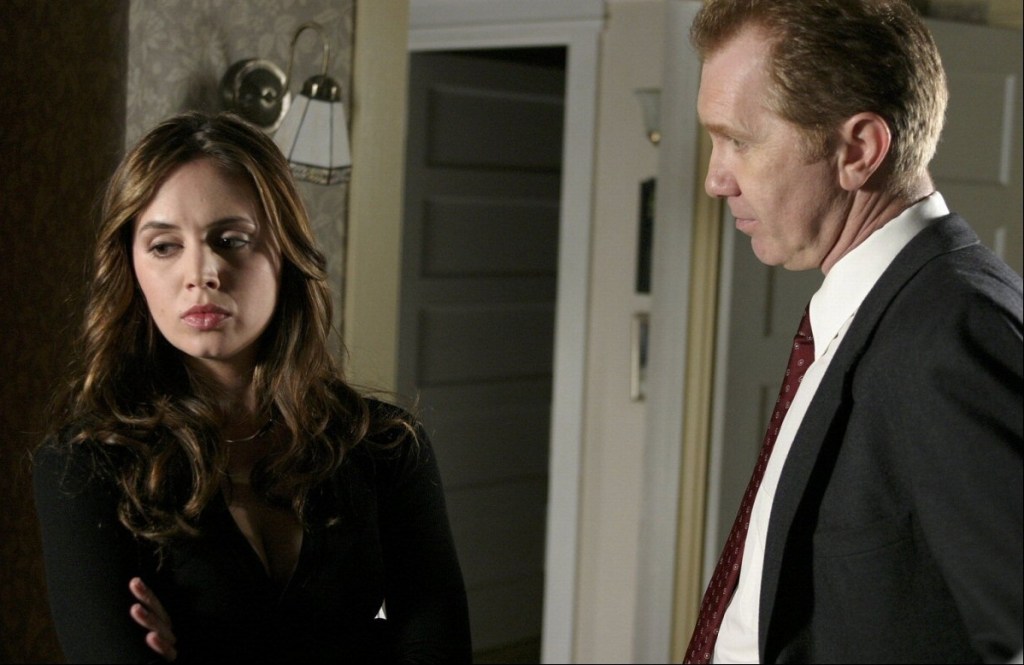
The mythology of Buffy the Vampire Slayer is that in each generation a slayer is born, and in the show’s case it was Sarah Michelle Gellar‘s Buffy Summers, who, in the series’ first season, died ever-so-briefly, resulting in Kendra Young discovering her Slayer abilities and coming to Buffy’s Sunnydale to take her place, unfortunately getting killed in the process. The result? Eliza Dushku’s Faith gained the powers to take her place and she, too, came to Sunnydale, though given her troubled background, it didn’t take much for her and Buffy to become enemies.
RELATED: Laurie Metcalf Movies and TV Shows: A Look Back Through the Star’s Must See Roles
She loved it, but was surprised by the number of people who dismissed the part as just being an actress having a good time being a bad girl.
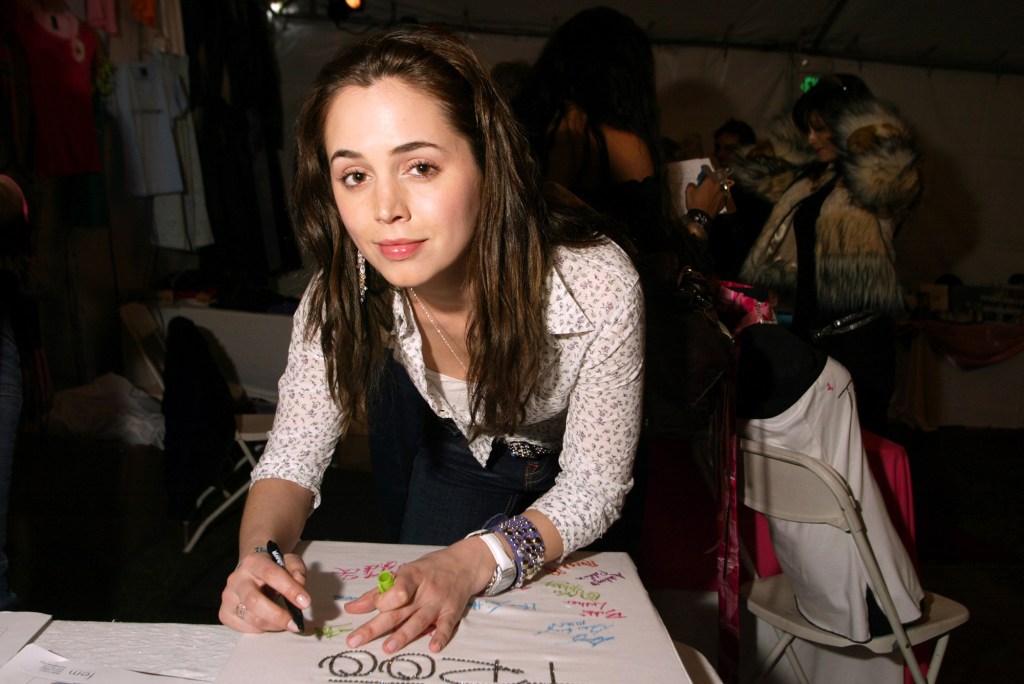
Eliza Dushku differs, “I’m, like, ‘No, it’s not just about that.’ It’s that I have a connection to a bad girl character that makes it more than just so black and white, and more than just so evil. I think that people that were watching Faith were really surprised when, at times, they felt sympathy for her and it wasn’t just, ‘Oh, here is this black and white monster bad girl.’ I think that it’s more about just playing interesting women and having contrast so that there is more to the girl next door.”
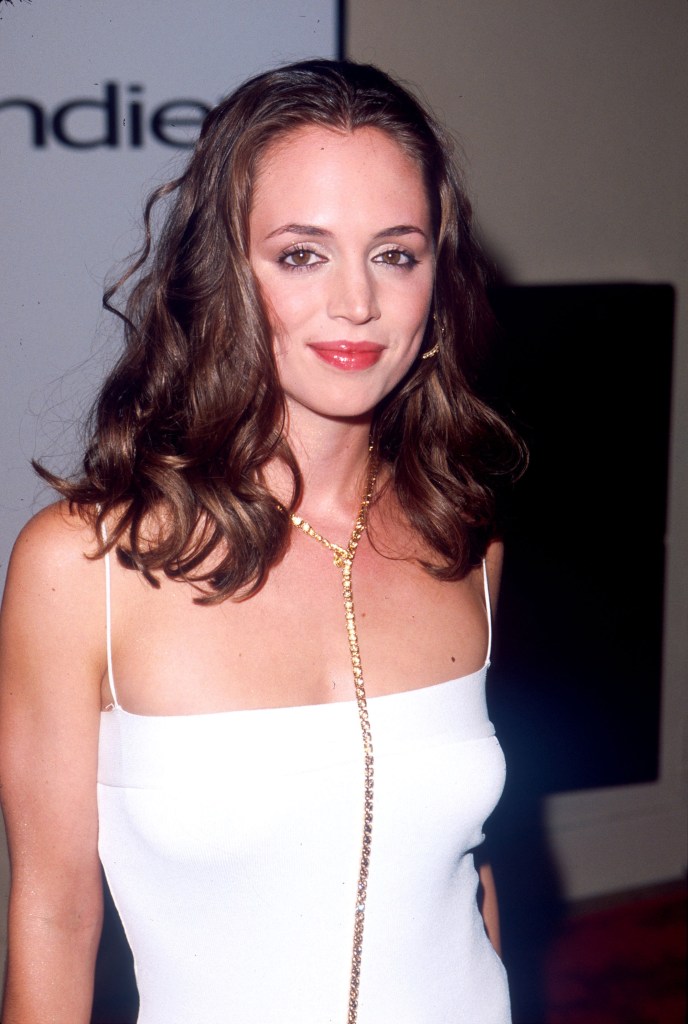
And there was more to the actress’ background that served to connect her to the character. “High school was hell in a way,” she reflects. “It was so hard. I went to public school in Boston after having been an actress since I was 10-years-old, so I had that element of just being different in an environment where any kind of difference you have makes you kind of an outcast and an automatic target.”
RELATED: Sheryl Lee Ralph: Everything You Need to Know About the Ultra-Talented Abbott Elementary Star
“I really built up this tough shell and it was all so bull—-,” Eliza Dushku elaborates. “It was a bit of a facade, but at the same time it was my reality, because just to survive you kind of have the attitude of, ‘Nothing hurts me; you can’t get through to me.’ I was kind of this really hard, little Boston chick, which worked really well for Faith and for the creation of that character. [Series creator] Joss Whedon really zoned into that and we worked with it.”
Before returning for the seventh and final season of Buffy the Vampire Slayer, Faith would bring her homicidal rage to the Buffy spin-off Angel, with the intent of a vampire twist on the phrase “death by cops.” Faith wants to die and attacks David Boreanaz‘s Angel in the subconscious hope he’ll kill her, but, instead, he sets her down the path towards redemption.
“As the years go on, and you start recovering and repairing from high school, I became less defensive, less hard. My friends and I were saying to each other, ‘OK, we don’t have to be such haters. We don’t have to be so terrified. We can start evolving.’ I don’t want to say that I’d softened up, but I’d definitely lost some of the anger and fear and defensive nature that I had when I was 17, 18 or 19 years old.”
“When I returned as Faith, I said to joss, ‘When I get to Angel, do I get, like really soft?’ He said, ‘I wouldn’t say soft, but you’ve definitely changed. But the ways you’ve changed — art definitely imitates life.’ It’s not so hard to draw these parallels between the characters and the real life people when we’re always growing and changing. Even Sarah Michelle Gellar’s character evolved in so many different ways.”
Bring It On
In 2000, the same year she reprised Faith on Angel, Eliza Dushku starred opposite Kirsten Dunst in the cheerleader film Bring It On, her role of Missy Pantone seeming as far removed from her as Faith was similar. “I grew up with three older brothers,” she shares, “so I thought I was a boy until I was, like, 10! I was all about having a crew cut and wearing hand-me-downs, and cheerleading was a girly sport in a way, unless you’re a guy being a cheerleader. So I was just never into that. But, making Bring It On was so much fun, because most people don’t get another chance after high school to do something like that.”
“That’s one of the things I love about acting. I mean, you can be a cheerleader for three months and experience that life, or you could be a rock star if you’re cast in that role. Any role that you’re in, you ultimately get to be that person and have that opportunity. Also, I felt more feminine after making that movie.”
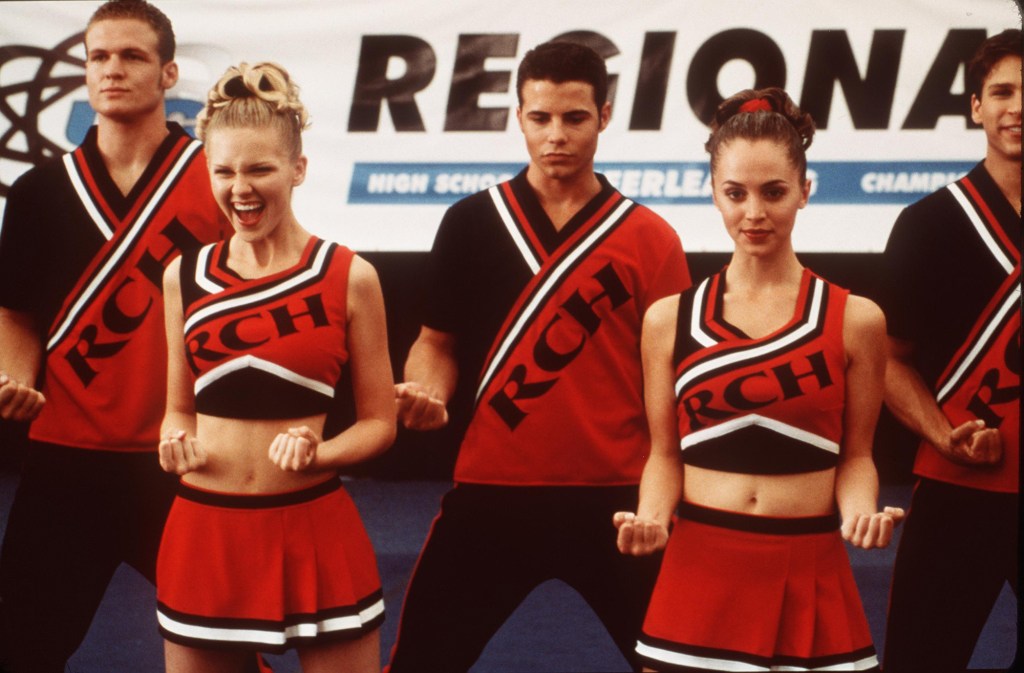
More feminine? There are a lot of fan boys who would find that hard to believe, but Eliza Dushku protests that growing up with her boisterous brothers made her a typical tomboy. “I was athletic growing up, playing tag football with my brothers and their friends,” she says, “and I’ve always loved swimming and the ocean. Bring It On actually got me more athletic. When that movie ended, I started rock climbing with my friends in California. Being from Boston, i decided to take advantage of the California coast and all the great things there are to do.”
Tru Calling
Eliza Dushku returned to weekly television in 2003, though it was not in the expected Faith spin-off that would have followed the conclusion of Buffy the Vampire Slayer, despite the fact a premise for such a show had been worked out by Angel producer Tim Minear.
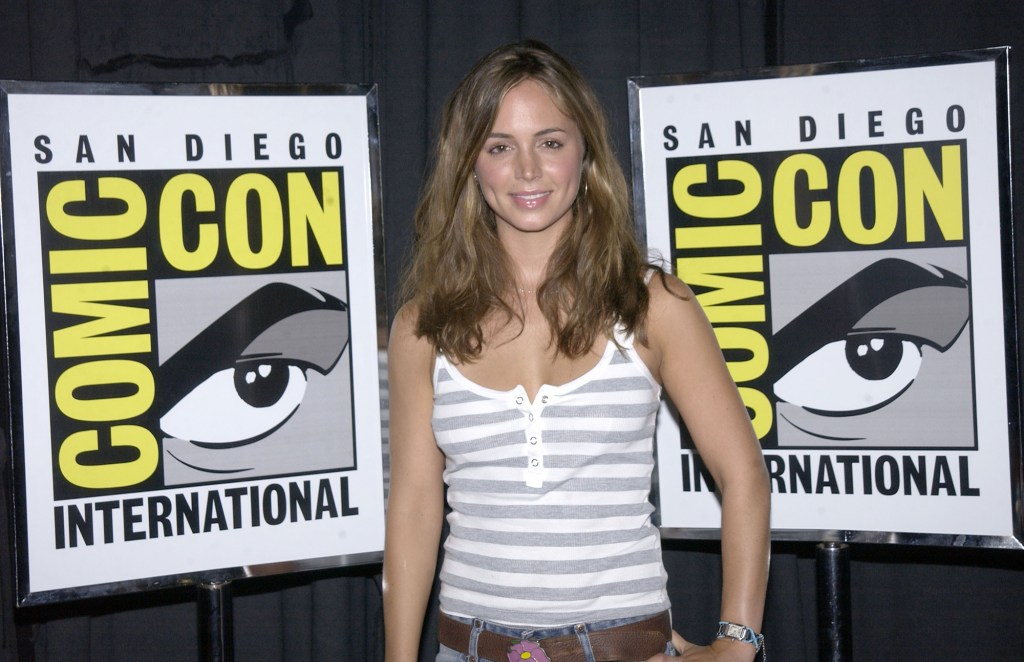
For her part, the actress says, “I felt kind of bad, but I also needed to get something else going. We had created Faith five years earlier and it’s the kind of thing where I wanted to be standing on my own two feet a little bit and not be following in Buffy‘s footsteps. I loved the show and have so much respect for the writers and everyone, but if it was going to be a series commitment — and God knows these things are — I felt it needed to be something new.”
Tru Calling, which aired between 2003 and 2005, saw Eliza Dushku cast as Tru Davies, a 22-year-old medical school student who begins working at the city morgue after her internship falls through. When the corpse of a dead woman appears to awaken and utter the words, “Help me,” Tru learns that she will relive the previous day so that she can prevent a particular death. Each episode featured a different murder to be solved.
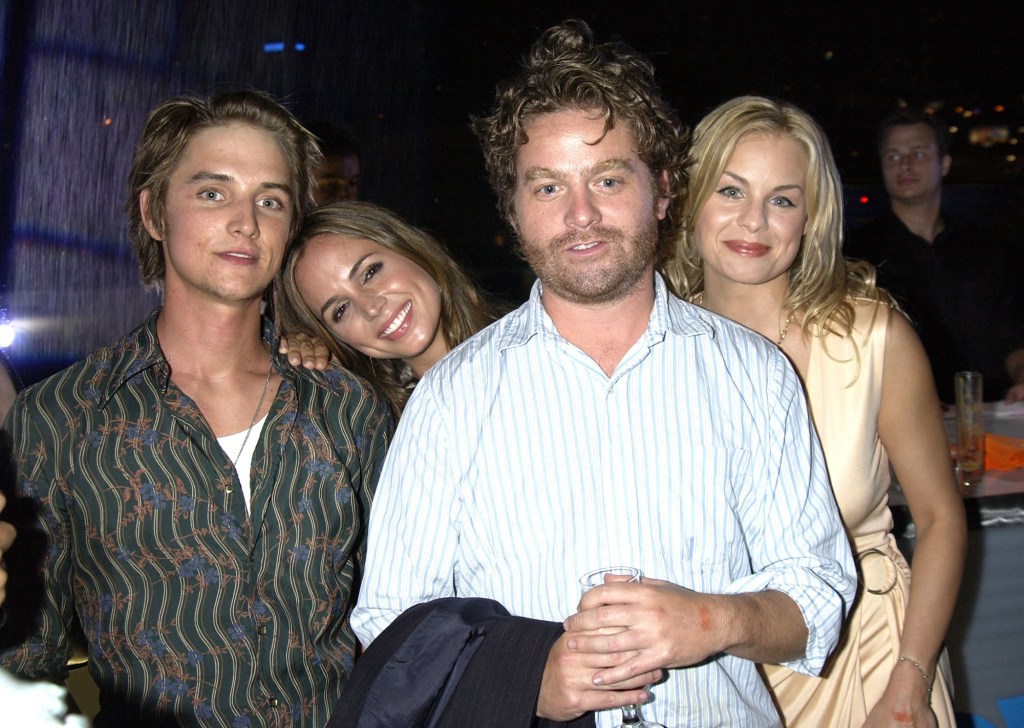
“I have a lot of similarities to Faith,” she explains, “but this character felt like it had more room for growth and go in different directions that I felt were closer to me. Something about it really affected me and grabbed when when I first read it. It felt like more of a coming-of-age role in that the age of 22, 23, 24 hadn’t really been done before.
“I think it’s a really important time for girls, because my best friends and I had been having all of these identity crises when we were getting to this age where we were changing. We used to play this whole flip, sassy, tough girl routine, but you get to this age and you start to feel responsibilities for the things that you do and for people around you. It’s a cool age and it was a cool kind of psychology to look into and that was really interesting to me about this role.”
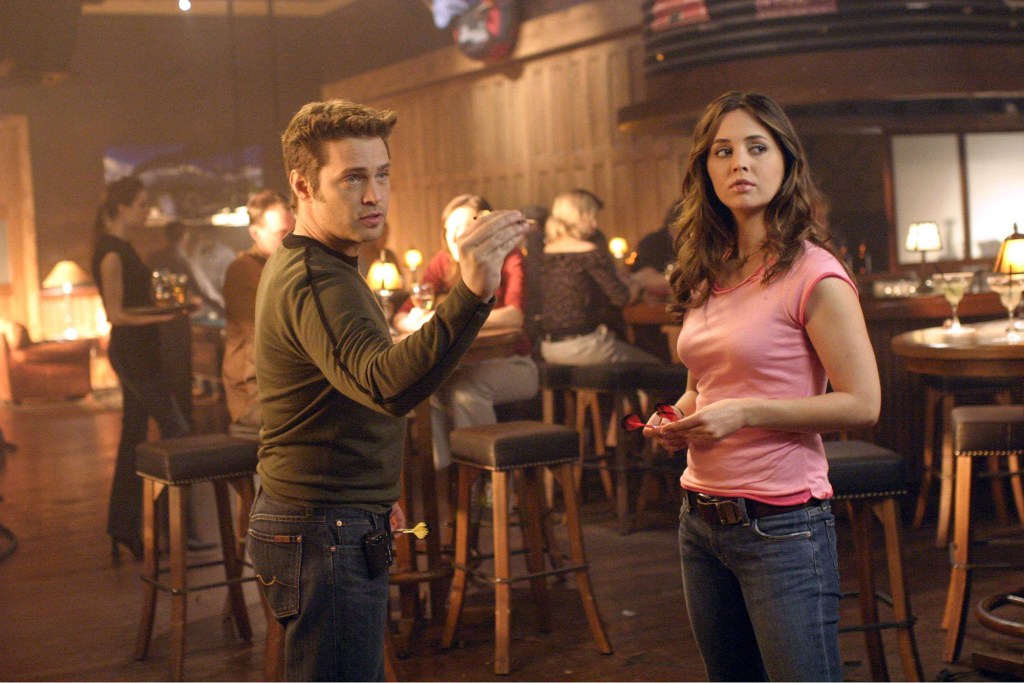
Tru Calling, unfortunately, only lasted two seasons and the actress has her own theories as to why. “When I signed on for Tru Calling,” she details, “it was called Heroine and she just had a little bit more of the qualities of a heroine, of this unbelievably sharp and intelligent and quick complex young woman. Not to point any fingers, but a little bit of that got lost in the gimmick of the show and trying to sustain that was just more complicated. But, you know, some things gel and some things don’t, but I love the show and the people I worked with on it.”
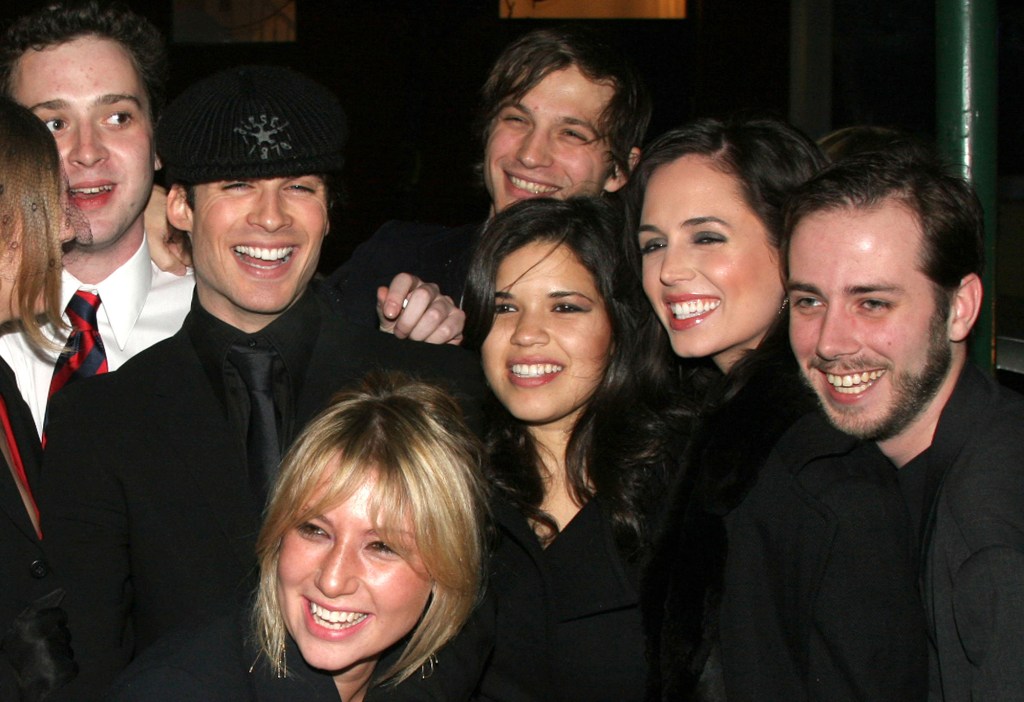
Moving on, in 2005 Eliza Dushku starred off Broadway in the Peanuts comic strip inspired production Dog Sees God, in which she more or less played Lucy Van Pelt. She would go on to appear in 15 films or TV movies between 2007’s On Broadway and 2017’s The Saint. On television, there would be many guest star appearances, on everything from The Big Bang Theory to White Collar, Leap Year (on which she was also a consulting producer), and five episodes of Banshee.
Dollhouse
There would be one more television series in the form of 2009 to 2010’s Dollhouse, created by Buffy‘s Joss Whedon. Wikipedia describes the show this way: “It revolves around a corporation running numerous underground establishments (known as Dollhouses) around the globe that program individuals referred to as Actives (or Dolls) with temporary personalities and skills. Wealthy clients hire Actives from Dollhouses at great expense for various purposes, including heists, sexual encounters, assassinations, expert counsel and all manner of unique experiences. The series primarily follows the Active known as Echo, played by Eliza Dushku, on her journey to self-awareness.”
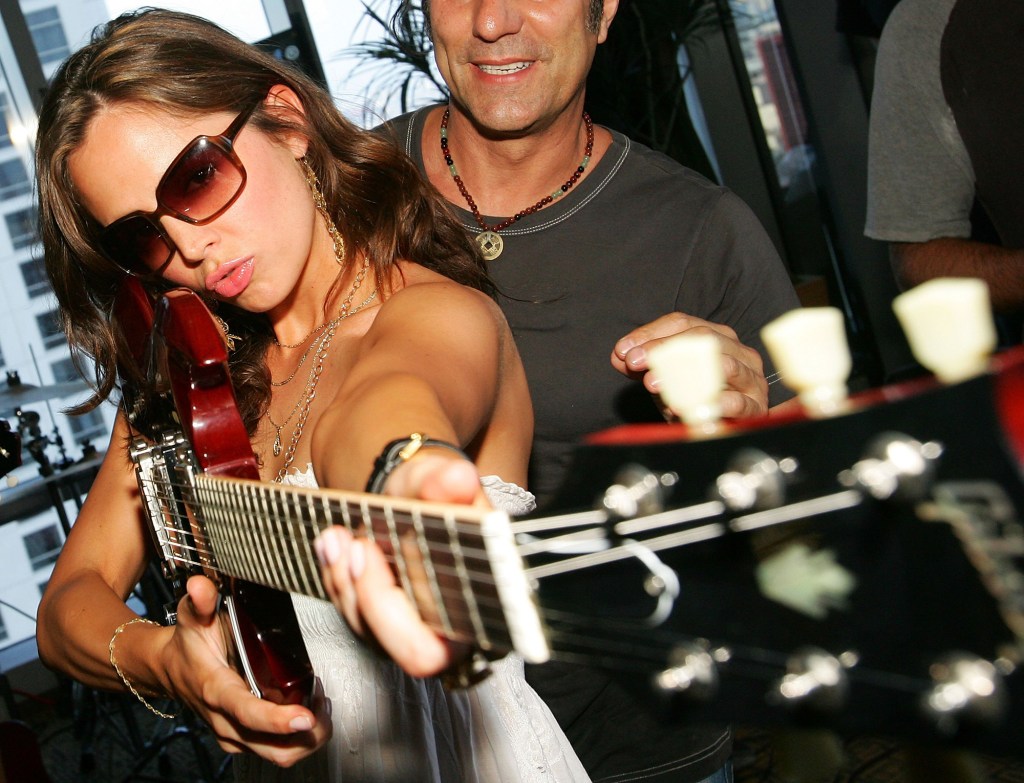
On the surface, Dollhouse seemed to have everything going for it, but it just failed to connect with the audience, not helped by the fact that it seemed to be a show in search of its own identity. “It may have been more of a cable show,” suggests Eliza Dushku, “because of the places we intended and hoped to go, and did go, but there were a lot of deep and complicated and controversial themes in that show, and in some ways we had to tailor it to the network we were on [Fox].”
She adds, “We shot an original pilot that had more of a noir element to it, which was just very different from what we ended up airing. I’m proud of what we did, but some things could have gone differently. You also have to listen to the audience and what mainstream people are watching — there’s a difference between a Buffy fan and a Two-and-a-Half Men fan. They’re different audiences. We hoped people would have found us, but you have to move on to the next thing.,”
Catwoman
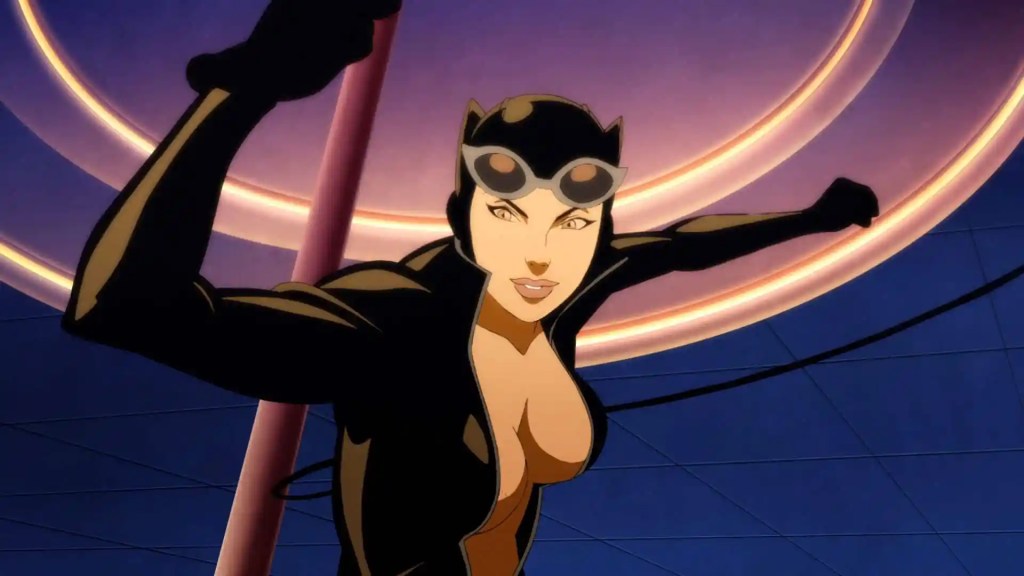
Particularly fun for Eliza Dushku was the opportunity she had to voice Selina Kyle, better known as Catwoman, in the animated film Batman: Year One and the short, “DC Showcase: Catwoman,” both in 2011, which she was thrilled to do.
“It’s such an iconic piece of material and there have been so many incarnations of the character,” she enthuses. “I know a lot of women, deep down, are drawn to Catwoman. Specifically, this was her introduction and where we see a side of her that people aren’t so familiar with. And voiceover acting is different; there’s a fine line between doing the voice and having it over the top, so you have to build a small space with your voice and you really have to land it.”
“A lot of people,” she continues, “are familiar with my characters like Faith and these sort of strong and vicious, but, very deep-down, wounded women and nothing is just black and white. I think people can identify with the characters I play, because they do truly awful things, but there’s something inside of them, a humanity, that some people connect to. So it’s not just good or evil, there’s lots of layers. She’s a prostitute and very abrasive and in your face, but you look at her and she’s very maternal and protective and there’s a loyal quality to her. She also wants it known that it’s not just a man’s world, it’s not just a man taking care of business and getting things done. She’s a real player.”
Moving Forward in Life
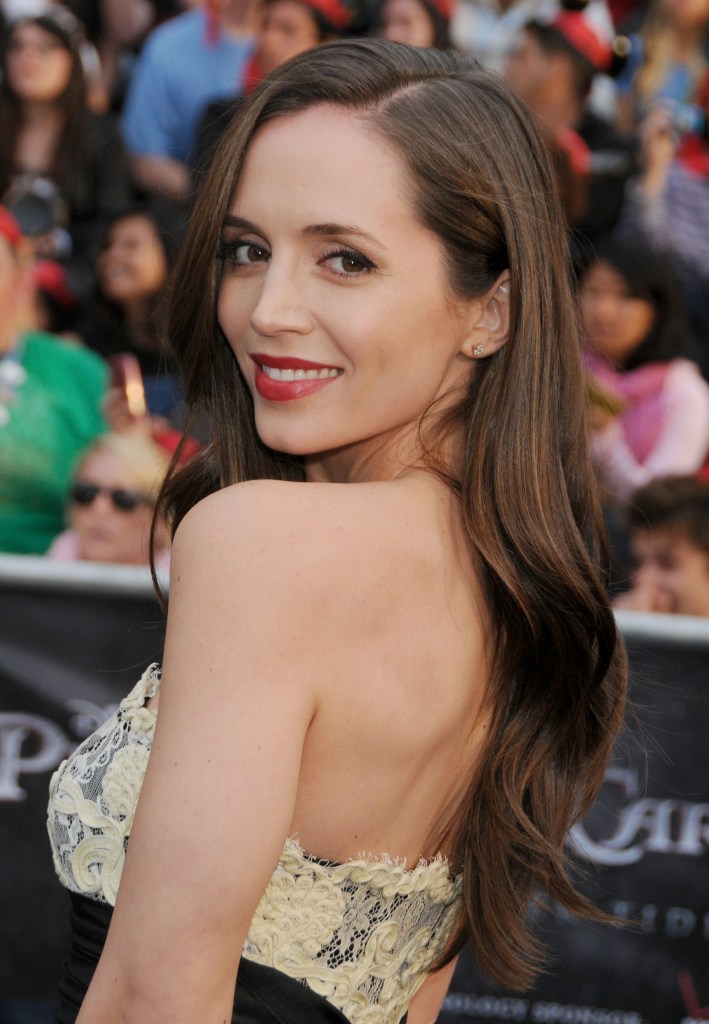
Eliza Dushku’s final role to date was on the Michael Weatherly legal drama Bull in 2017, where she appeared in three episodes as the character J.P. Nunnelly. So effective was her portrayal that the intent was for her to come back as a series regular the following season.
However, when she reported inappropriate behavior and comments on Weatherly’s part, the next thing she knew, showrunner Glen Gordon Caron (Moonlighting) fired her. This resulted in a lawsuit on her part, which, in January 2019, CBS settled the matter for $9.5 million. She nonetheless addressed her grievances with the House Judiciary Committee’s hearings on workplace sexual abuse, the video of which is below.
Since then, Dushku’s only involvement with filmmaking has been as a producer of the 2018 film Mapplethorpe, which looks at the life of photographer Robert Mapplethorpe. However, she’s been far from inactive, working with others to help give voice to their abuse. Additionally, several years ago she moved back to Boston and decided to get her college degree from Suffolk University, where her mother taught for 47 years. And then there was the matter of motherhood.
In 2019 she spoke to Time magazine and summed what was happening by noting, “I need the distance to recalibrate and start a family. But I don’t want people to think that coming forward means ending your career. I could be acting. I could be in L.A. I just need to be here right now.”
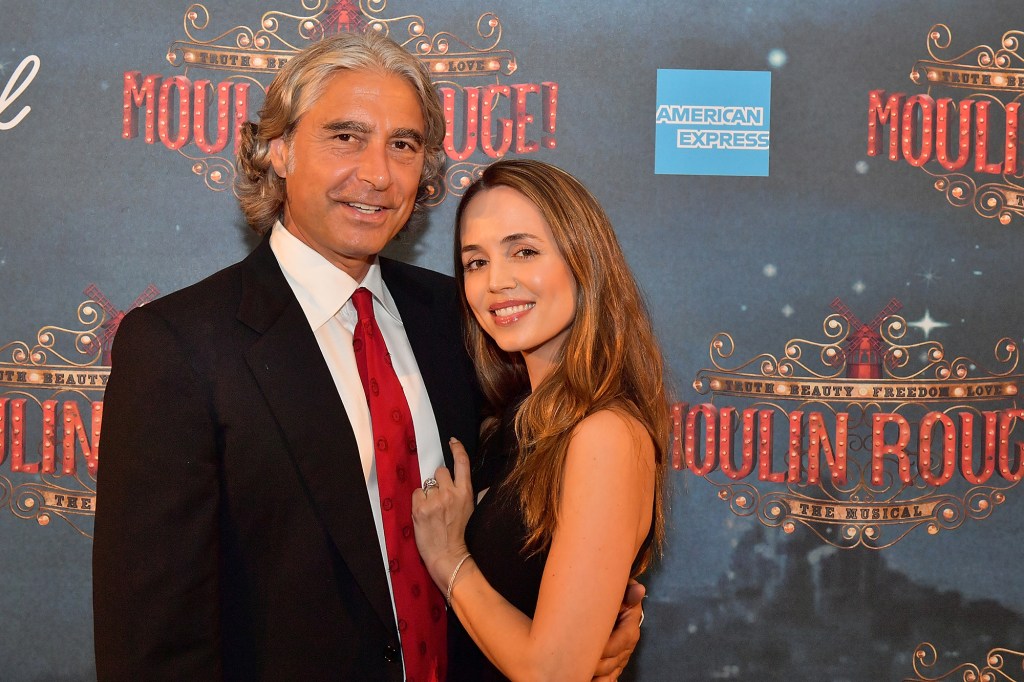
“Here” includes her getting engaged to businessman Peter Palanjian in June 2017, the couple marrying the following year and going on to have two children. In an Instagram post she described the two of them as being “so grateful and overjoyed” to be parents together. Outside of that, the family Palanjian has kept pretty quiet, living outside of the media spotlight and nurturing their family.
What comes next for Eliza Dushku in terms of her career is anyone’s guess at this point, but she still takes some satisfaction in the fact that a character she played nearly 25 years ago — and the one that really established her presence in Hollywood — continues to resonate with people.
“Faith is my girl,” she says enthusiastically. “She’s always been good to me and she’s been a good friend to me. She’s a part of me. But on top of that, I’ve gotten letters from girls who have said, ‘I was being abused for six years. Your character came on and I realized that if Faith could stand up to these guys trying to bring her down, so could I.’ That stuff is really intense — cool success stories from people who watch that character.”
And as to the fact that she’s drawn to such strong characters, she actually credits it to her mother. “I have a mother that’s a liberated feminist powerhouse,” Dushku closes. “Fierce woman and one of the strongest people I’ve ever met. I hear women’s stories about how they overcome obstacles in their lives, and the admiration I have for them is insatiable, and I assume it always will be.”
Enjoy more of our 1990s TV coverage













